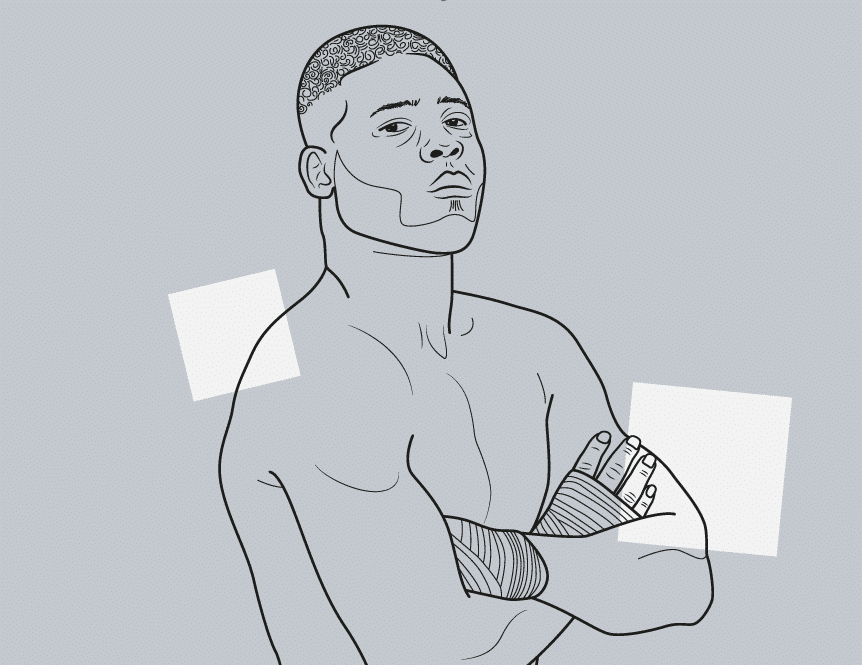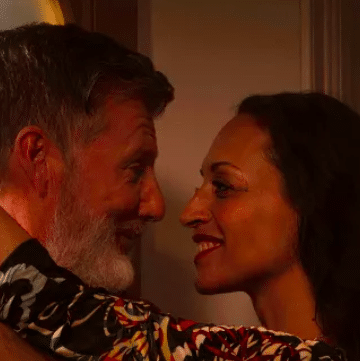The Wellness Routines Of Boxers
Health
Insight on wellness training for your entire being, courtesy of top boxers including Isaac Chamberlain...by our friends at online men's clinic Numan.
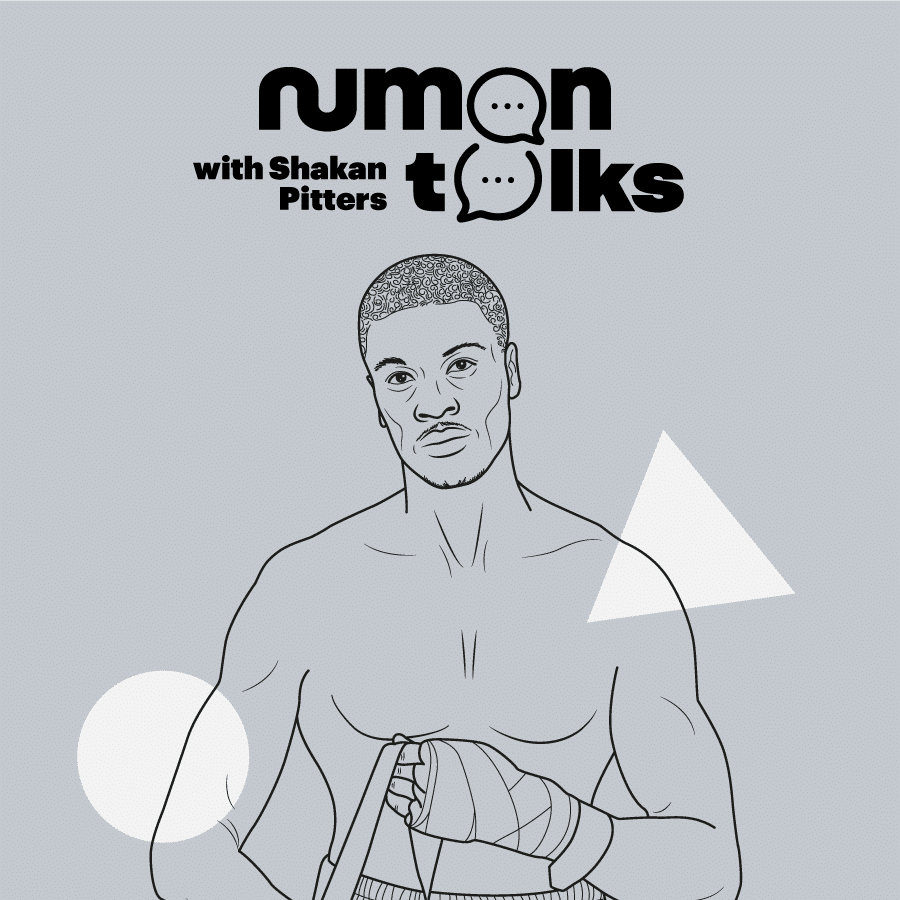
Numan Talks with Shakan Pitters
What do you eat on a typical day?
I normally wake up about 8 o’clock, I have a coffee and something light: either Weetabix or porridge with blueberries, or scrambled egg with avocado or some fruit. I have my first session, and once I finish my first session I’ll come back to my meal preps which I have in place. These normally consist of either sea bass or salmon or grilled chicken with broccoli, veg and sweet potato to get some light carbs in there.
I’ll have a meal after my first session, which will probably be about half 12, then I’ll have another session later on, followed by another meal which will be about 3 or 4 o’clock, and then dinner will normally be about 8 or 9. I normally have three pre-prepared meals plus breakfast, so four meals in total.
I don’t take any supplements – the only thing I normally take is Omega-3, the cod liver oil capsules. It’s something I’ve taken from a young age and have adapted at my older age to carry on taking because I see the health benefits in it. It’s not only good for the brain and vision, but I feel good in my body for taking it.
I drink loads of water. For athletes like myself or anyone who trains, water is the cure for your body. It’s what the body needs. I get through about three to four bottles of one and a half litre bottles of water a day.
What is a typical day of training like for you?
So, my training programme on a typical day: my first session is around 10 o’clock and each session will be about 2 hours long. After my first session in the boxing gym, I come back home, refuel, and then I’ll have a second session at 4 o’clock which we class as the evening session. That’ll probably finish around 6 o’clock and then if I haven’t done a run in the morning, I’ll go for a run or a swim in the evening.
I like to do swimming – I think it’s a good all-body workout, and it works all the muscles: muscles that I probably wouldn’t work in the gym. On Wednesday and Friday, I also do strength and conditioning. On a strength and conditioning day I maybe don’t include the run or the swim – it all depends how I feel on the day. I normally rest on the Saturday or the Sunday, depending on the week. The body needs a rest to regain itself, and repair itself. I’m sure many boxers may agree and relate to this – there’s a lot of impact on the hand when we hit the bag, and a lot of demand on the body.
Injuries are part of the game – whether it’s pulling a hamstring when running (which I have done before), shoulder injuries or knuckle injuries. Since we do a lot of impact work which is on the arm and the hands, a lot of boxers tend to have a lot of chipped knuckles or broken hands.
If things do present itself like that you just adapt around it: if you have an injury on the right hand, then you don’t hit the bag with the right hand. If you have an injury to the arm you rest the arm – it’s the body indicating that it needs to rest.
What do you do to keep your mind healthy?
The way I keep on top of my mental health is just by doing the simple things. I try to keep my life as simple as I can. I keep the same friends and if I’m ever facing any problems, I’m open with friends and family, and I make sure to talk to them.
I like to learn new skills so something – as funny as it sounds – like cooking, takes my mind away from the everyday things I do. Boxing is a demanding sport, so cooking takes my mind off it.
Being in a boxing gym, when you hit the bag, and when you are training – it’s a good relief for your mental health. When you’ve had a stressful day, which we’ve all had, I find that when I’ve been in a boxing gym and come out, I feel relieved, I almost feel like a new person because I’ve let that physical stress out of my body.
I do feel it’s important not just for boxers but for anyone, to be able to talk to family and friends who can pick them up and lift them on their feet. There’s no shame in it – it’s important to talk to people and do things that you enjoy which will take your mind off any kind of stress that you might face day-to-day.
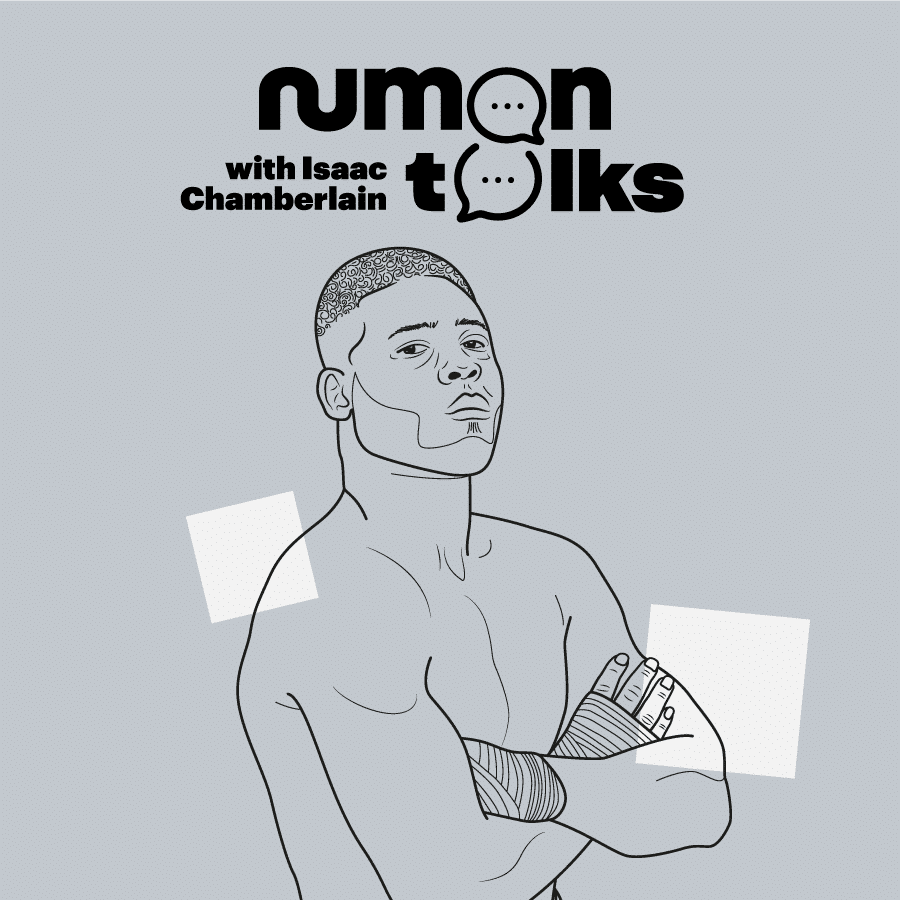
Numan Talks with Isaac Chamberlain
What do you eat on a typical day?
My diet on a typical training day changes depending on what kind of training session I’m doing. So I’ll wake up at 6am and go for a run. After I come back, I’ll have porridge, some bananas and cinnamon and some orange juice.
Then I’d go to the gym for around 10/11am and I’ll have a meal replacement shake before then and some fruit. After training I normally have some pasta, chicken, and avocado – simply because I’ll have training in the next couple hours again.
I normally have something small like an oat bar and bananas just before my weight training session, and then for dinner I just have sweet potato, chicken and vegetables – not many carbs.
What is a typical day of training like for you?
My training plan consists of waking up at 6/7 in the morning to go running, and then I train again at 11am. I’ll do boxing, sparring, pad work, hit the bags as well as sit-ups and neck exercises. Then I train again at around 5.30/6pm which is strength and conditioning. I’ll do deadlifts, squats, and explosive exercises or go to the running track in the evening.
The weight class that I compete at is cruiserweight, which is under 91kg or 200lbs. The training that I do to compete at this weight category is mostly based on agility, mobility, and explosiveness. The guys that I’m facing, most of the time, are very slow, and very flat-footed at that weight. I try to maximise my speed and my explosiveness, so I always have an upper hand at that weight.
What do you do to keep your mind healthy?
I stay on top of my mental health by listening to music, meditating, and reading books. I really focus on the now instead of looking too far into the future or looking back. I like to seize the day, seize the opportunity, and take one day at a time
Of course, there have been some times where it’s been very hard for me, suffering setbacks like losing my first ever professional fight headlining the O2 arena. I think everybody fails in life at one point in their career, but us athletes fail with the whole world watching. That was a very difficult time for me and I’m just grateful that I bounced back. I just kept grafting, I kept working. That was really testing but I pulled through it and it just showed the character and the strength that I have.
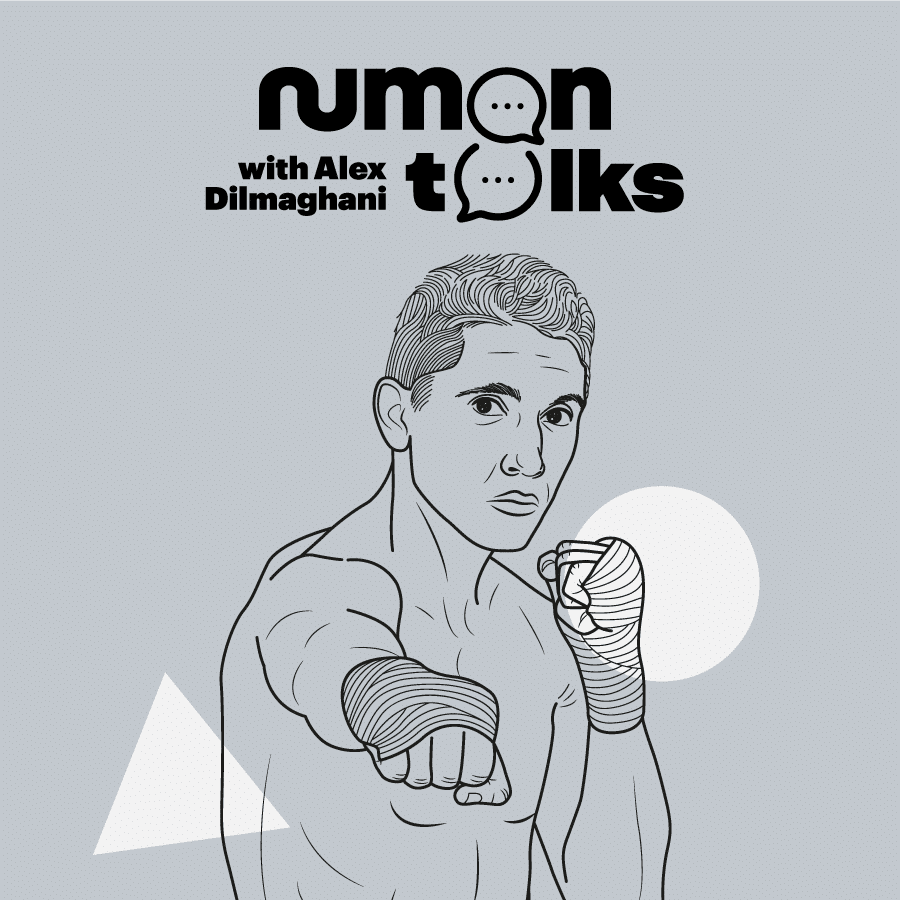
Numan Talks with Alex Dilmaghani
What do you eat on a typical day?
So day-to-day, I always tend to eat healthy, even outside of camp. Outside of camp, I get to eat more because weight doesn’t restrict me. Training-wise, when I’m in camp, I like to start my day off with oatmeal and some protein powder, whey isolate with some multivitamins and some Omega-3. I think the Omega-3 really helps with my joints.
For lunch, I’ll normally have some rice, salad, and fish like tuna with some avocado. For dinner, again, I’ll have the same sort of thing: rice with vegetables, and salmon. I tend to stay away from meat as much as I can – I have it once or twice a week. Meat sits in the stomach for too long, and when I eat fish, I feel more healthy.
What is a typical day of training like for you?
Every day, I get up, and I run in the morning on an empty stomach. It helps with both conditioning and also burns fat easier, I find. Normally at noon time, I go to the gym. I hit the bags, pads, I spar. If it’s closer to the fight, I spar harder, I spar more rounds. Maybe a week before, I won’t spar much because I need to save all the energy for the fight itself.
The last week, I also switch my sleep schedule because I fight at 10pm. It makes no sense to get up early, and run when I need to be awake for the night.
What do you do to keep your mind healthy?
I like to take care of myself through talking to friends, switching off, and realising that work is work. Boxing is very physically demanding but it’s also mentally demanding. You’re tired, and each day when I’m tired, I have to remind myself why I’m doing it, who I’m doing it for, what motivates me. I feel that really helps me get through the next day and start each day with a hunger.
This lockdown has been difficult on everyone mentally. The way I coped with it was realising how lucky I am: my family and I, we’re healthy, I’ve still got work. A lot of people don’t have those things. Through appreciation alone, I managed to cope well.
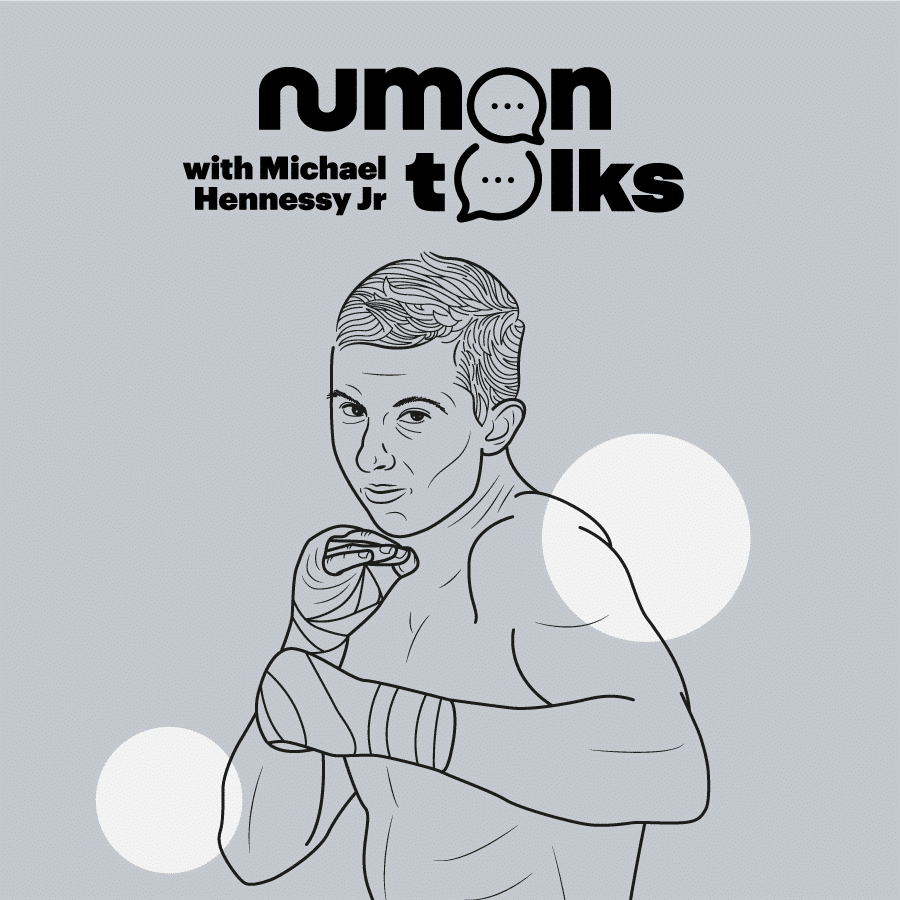
Numan Talks with Michael Hennessy Jr.
What do you eat on a typical day?
On a typical training day, I normally get up quite early and get a big breakfast in before my first session of the day. Breakfast normally consists of porridge, fruit, and either a protein shake or a protein bar which I like to have to get rid of my sweet tooth in the morning.
I’ll let that digest for about an hour before I start training, so I don’t feel sick. For lunch and dinner, it’s very important for me to get a lot of protein in for my recovery, and to get the gains from training. However, I like to stick to a mainly vegetarian diet, and have as little meat as possible. For example, I get my protein from chickpeas, lentils, beans, pulses, etc. If I do have meat, I’ll have chicken and fish. Of course, for a boxer, it’s very important to get lots of carbs in, because they give you energy. I get this from foods like rice, pasta and jacket potatoes.
Lastly, I have a lot of greens with my lunch and dinner. Vegetables have lots of nutrients, and they also fill you up without containing many calories which is very useful when making weight. I work around very close to my weight, so I’ll have the odd sweet thing here and there, because I feel like if I deprive myself, it puts me in a bad mood when I’m training. Having the odd sweet thing here and there makes me feel a lot better.
Lastly, I take vitamin D because in the UK climate, we obviously don’t get too much sun, so it’s very important for me to take them. I also take B12 vitamins because it’s what you get from meat, and I try to have as little meat as possible, so therefore I’m probably not getting enough B12 from my diet alone.
What is a typical day of training like for you?
My training programme normally consists of roughly two sessions a day, six days a week, and then I rest on Sundays. At least one of the sessions per day will be boxing, whether it be bag, pads or sparring. I try and fit in at least two spars a week because that’s as sport-specific as it gets. Sparring is how you get your fight fitness, your timing, your reflexes, and it’s the most important part of training, without a doubt.
My other session will either be running (for my fitness), or weights (for my strength and power) which complement the boxing training very well. I train all year round, so I’m always fit, but in a physical sport like boxing, it’s very easy to pick up injuries. If that does happen, what I’ll normally do is I’ll work other body parts that aren’t injured. If my left hand’s broken, I’ll work my right hand. If both hands are broken, I’ll work on my head and feet movement. There’s no excuse, you can always be working on something.
What do you do to keep your mind healthy?
I’m quite a happy individual, but like everyone else, I do have down days. What I find really helps on those down days is actually going to the boxing gym, because when I go there all my worries and negative thoughts just disappear. It’s great taking my anger out on a heavy bag or my sparring partner. No matter how bad I feel going into the gym, I always feel great coming out.
Another thing I do to help keep on top of my mental health is yoga. I try and go to yoga at least twice a week and I think it’s brilliant for the mind, body and soul. I don’t think it’s just athletes who should do it. I think it’s a very important thing for everyone to do, to stay on top of their mental health. The same thing happens: no matter how bad you feel going in, once you leave you feel so relaxed and happy about life.
I find in a tough sport like boxing, it’s extremely important to have down time with your friends and family and enjoy yourself when you’re not in hard training. Boxing is a tough enough sport as it is, and if you’re not having fun in between, it can lead to you feeling down a lot, and not good about life. It’s very important to spend time with your loved ones and enjoy yourself.
Trending

Join The Book of Man
Sign up to our daily newsletters to join the frontline of the revolution in masculinity.




